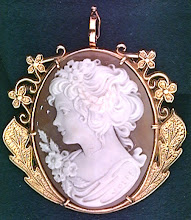So, to organize my thoughts and hopefully educate the rest of y'all as well, here goes. The NEA and NEH were both created in 1965 by the National Foundation on the Arts and Humanities Act. This act covers three branches, essentially: the NEA, the NEH, and the Federal Council on the Arts and Humanities (essentially a federal committee). There's no real overarching bureaucracy or identity greater than each of its components. The NEA started off with 2.5 million dollars and 12 employees, its goal to fund creative endeavors in the arts - literature, dance, theater, and the visual arts. I'm actually going to write another post on how many amazing things the NEA has facilitated over the years - I could easily get sidetracked, it's so cool. The NEH has a different goal - the facilitation of cultural access. So the NEH funds museums, educational programs, scholarly work, research. These are mostly history-related. The NEH's site betrays a very authoritarian hand in what it deems worthy of funding - "Because democracy demands wisdom, the National Endowment for the Humanities serves and strengthens our Republic by promoting excellence in the humanities and conveying the lessons of history to all Americans." (Note that - what it deems strengthens the Republic. yay.) The NEH gave you, among other things, that cool documentary about Tutankhamun, the endless Civil War documentary you watched in eighth grade history class, and fifteen Pulitzer Prize-winning books.
So, what does Obama's appointment of Jim Leach mean for the NEH? I really don't want to talk about Obama's snagging of "yet another" moderate Republican. But I do want to share some cool stuff I learned about just how much Leach practices what he preaches, arts-wise. Leach is an unstinting advocate for the arts.
In 2006, Leach received the Congressional Arts Leadership Award conferred annually by the Americans for the Arts advocacy group and the U.S. Conference of Mayors. They cited him as an advocate for increased arts and humanities funding and as a co-sponsor of legislation — still not passed — that would allow artists to take larger tax deductions for works they donate to museums and charities. Current law allows artists to deduct the cost of the materials they use to create a work; Leach proposed allowing them to deduct a donated piece’s fair market value.
Also, when he was appointed, Leach commented:
Asked whether he would push to increase funding for what by federal standards is a minuscule agency, Leach said he “will be supporting the administration” in its budgeting decisions. But he said “the arts and humanities are fundamental to our society, particularly in difficult times. In the Great Depression ... we spent far more on the arts and humanities, relative to [national economic output] than we do today. Nothing is more important to understanding what’s happening in society, particularly in a fast-changing world.”
This talk is really good to hear - when Leach was still in office, there was no possible political benefit to attempting to pass the law about donated art. Artists are few, and often don't have the monetary muscle to donate to a campaign. But he did it anyways. In my searching, I've heard nothing but good about him.
My only wish is that Obama would fund the two organizations at the same level - right now he's trying to fund the NEH at 10 million higher than the NEA *pout*.

It seems that if Obama hires a Republican, it's a damn good Republican.
ReplyDelete